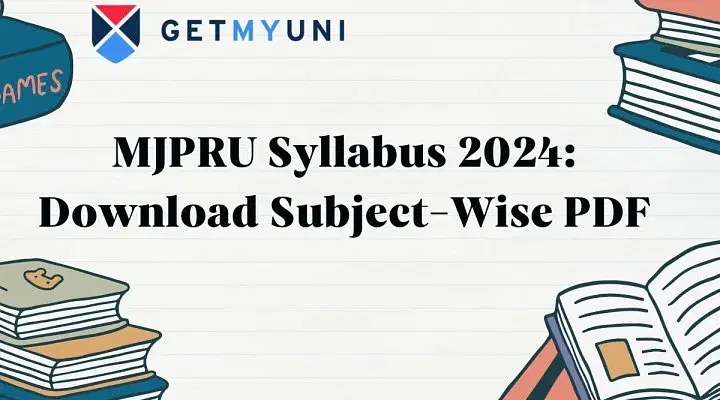Get complete details on LLB Entrance Exam 2024. Check the Exam Dates, Syllabus, Question Papers, Books and latest news regarding LLB Entrance Exam 2024.
Do you want to be a part of the justice system of your country? Do you want to be a person who helps a person get the justice they deserve? Then you should consider applying for LLB entrance exams which will facilitate your admission to colleges and universities that provide courses in Law and Order. LLB stands for Bachelor of Legislative Law. Students who are interested in being a part of the justice system of the country can take up this course by qualifying for particular LLB Entrance Exams.
There are lots of entrance exams conducted every year in India for students who want to join an LLB course. AILET, CLAT, LSAT, BLAT, TS LAWCET, AP LAWCET, PU LLB, ACLAT, SLAT, DU LLB are some of the top LLB entrance exams. These exams are either conducted by colleges/universities or by various conducting authorities such as the Consortium of NLUs.
- LLB Entrance Exams Dates
- LLB Entrance Exams Syllabus
- Previous Years' Papers and Sample Papers for LLB Entrance Exams
- LLB Entrance Exam Books
- LLB Entrance Exams Eligibility
- LLB Entrance Exams Pattern
- Why Study Law (LLB)?
Also Read on LLB Admission
LLB Entrance Exams Dates
The list below shows the exam dates of various LLB entrance exams along with their respective result date, admit card and application form details. Click on the links below to know more about the important law entrance exams in India.
| Name of Exam | Application Form Last Date | Exam Date |
| AILET | Nov 2024 | Dec 2024 |
| CLAT | Dec 2024 | Dec 2024 |
| LSAT |
January session
June Session
|
January session
June Session
|
| BLAT | July 2024 | August 2024 |
| TS LAWCET | May 25, 2024 | June 3, 2024 |
| AP LAWCET | July 2024 | July 2024 |
| PU LLB | May 2024 | June 23, 2024 |
| DU LLB | June 2024 | Oct 2024 |
| ACLAT | May 2024 | June 2024 |
| SLAT | Apr 12, 2024 |
Test 1 - May 5, 2024 Test 2 - May 11, 2024 |
LLB Entrance Exams Syllabus
A syllabus is the most important thing while contemplating how to prepare for LLB entrance exams. Before preparing for an exam knowing the syllabus is very necessary. Mentioned below is the comprehensive syllabus for the LLB entrance exam:
| Subjects | Syllabus |
| English |
|
| Current Affairs Including General Knowledge |
|
| Legal Reasoning |
|
| Logical Reasoning |
|
| Quantitative Techniques |
|
Previous Years' Papers and Sample Papers for LLB Entrance Exams
Referring to previous year law entrance exam papers and sample papers for the examination is an important revision step. By attempting the previous year and sample papers, you will get an experience of how the examination is going to be and you will be able to time yourself to make sure you are efficient in the examination. Here are a few links to some reference papers:
LLB Entrance Exam Books
Before appearing for any important law entrance exams in India, candidates must render help from the best books. It will enhance the preparation and side-by-side improve the chances of clearing the LLB entrance exams. Some of the popular books are as follows:
| Name of Books | Authors/ Publishers |
| Self Study Guide LLB Entrance Examination 2024 | Arihant Experts |
| Legal Awareness and Legal Reasoning for 2024 | A P Bhardwaj |
| Quantitative Aptitude | RS Aggarwal |
| Guide To Clat & LL.B. Entrance Examination 2024 | Lexis Nexis Team |
| Bare Acts of Indian Constitution | Dr. P.K. Agrawal & Virag Gupta |
| Verbal and Non-Verbal Reasoning | RS Aggarwal |
| Analytical Reasoning | MK Pandey |
| Analytical and Logical Reasoning | R.S. Aggarwal |
| High School English Grammar and Composition | Wren & Martin |
| Objective General English | RS Aggarwal |
| Barron’s Pocket Guide to Vocabulary | |
LLB Entrance Exams Eligibility
LLB entrance exams such as CLAT and LSAT are common entrance exams conducted for students to get admission into colleges that are participating in that examination. Exams such as BLAT, PU LLB, ACLAT, and DU LLB are conducted by particular colleges for admission into that college only, sometimes there are two or three partner institutions with the college. Finally, LLB entrance exams such as AP LAWCET, TS LAWCET, MH CET LAW are conducted by the state education board for students to get admission to all participating law colleges/universities in that particular state.
There are various LLB courses available in law schools across the world. The most common LLB programs are:
- 3 Year LLB
- 5 Year LLB
- BA LLB
- BBA LLB
- BCom LLB
- BSc LLB
LLB Entrance Exams Eligibility Criteria
Before applying for any entrance examination it is important to check the eligibility criteria if the candidate is found ineligible for the examination after applying for it, the application form can be revoked and the application fees will not be refunded. There are various eligibility criteria for the various LLB programs. These criteria are common among the LLB Entrance Examinations.
Eligibility Criteria for 3-year LLB:
- Candidates are required to have a bachelor’s degree in any discipline with at least 45% aggregate score in the qualifying examination.
- Candidates who are appearing for the qualifying examination can also apply for the examination as long as they are able to secure at least 45% marks in the examination.
- There is no upper age limit to apply for the entrance test.
Eligibility Criteria for 5-year LLB, BA LLB, BBA LLB, B.Com LLB, and BSc LLB:
- There is no upper age limit.
- Candidates who have completed their class 12 with at least 45% in the qualifying examination are eligible for the entrance tests.
- Candidates who are appearing for their class 12 qualifying examination are also eligible.
LLB Entrance Exams Pattern
The exam pattern serves a major purpose in the preparation for an examination. Here are the exam patterns of a few of the LLB entrance exams.
| AILET Exam Pattern |
|
| SLAT Exam Pattern |
|
| CLAT Exam Pattern |
|
| LSAT Exam Pattern |
|
| PU LLB Exam Pattern |
|
To prepare efficiently for the examination, it is important to know the syllabus. This will give you an idea of the topics considered for the examination. Practice for the examination starting with the topics most difficult for you. Refer to the exam pattern too to understand the types of questions and the time given to complete the entrance test.
Why Study Law (LLB)?
Here are a few reasons why you should consider pursuing a career in law:
- Several career options:
As an LLB graduate, you will have multiple career opportunities in either government or private industries, social work, politics, and so much more, not just in the justice system. - Financial Stability:
Graduating from an LLB course might not guarantee immediate success, but the professional qualification does come with confirmed job security and financial stability. - The ability to make a difference:
As an LLB graduate, you will be working with the justice system. This will be your chance to make a difference in the world and thus leave your mark by paving the way for a better future for the people that you get to help. - Development of self-confidence:
Law students are frequently made to engage in debates and discussions which mimic the environment of a real courtroom. This not only gives them practical experience but it will also help them to improve their self-confidence and nurtures good self-esteem. - A challenge to your intelligence:
Studying law offers a lot of benefits, which means that graduating will not be an easy task. You will need to give your full intellectual effort and outstanding academic performance for this course. If you are a person who enjoys an intellectual challenge, then a law degree course might be the best option for you.
These are just a few reasons to study law and pursue a career in it. This is one of the oldest academic fields in the world and is still held in high regard. The factors mentioned above show that studying law builds the characteristics of a leader in an individual. This is actually proven as some of the greatest leaders such as Mahatma Gandhi, Fidel Castro, Nelson Mandela, Barack Obama are graduates of law.











